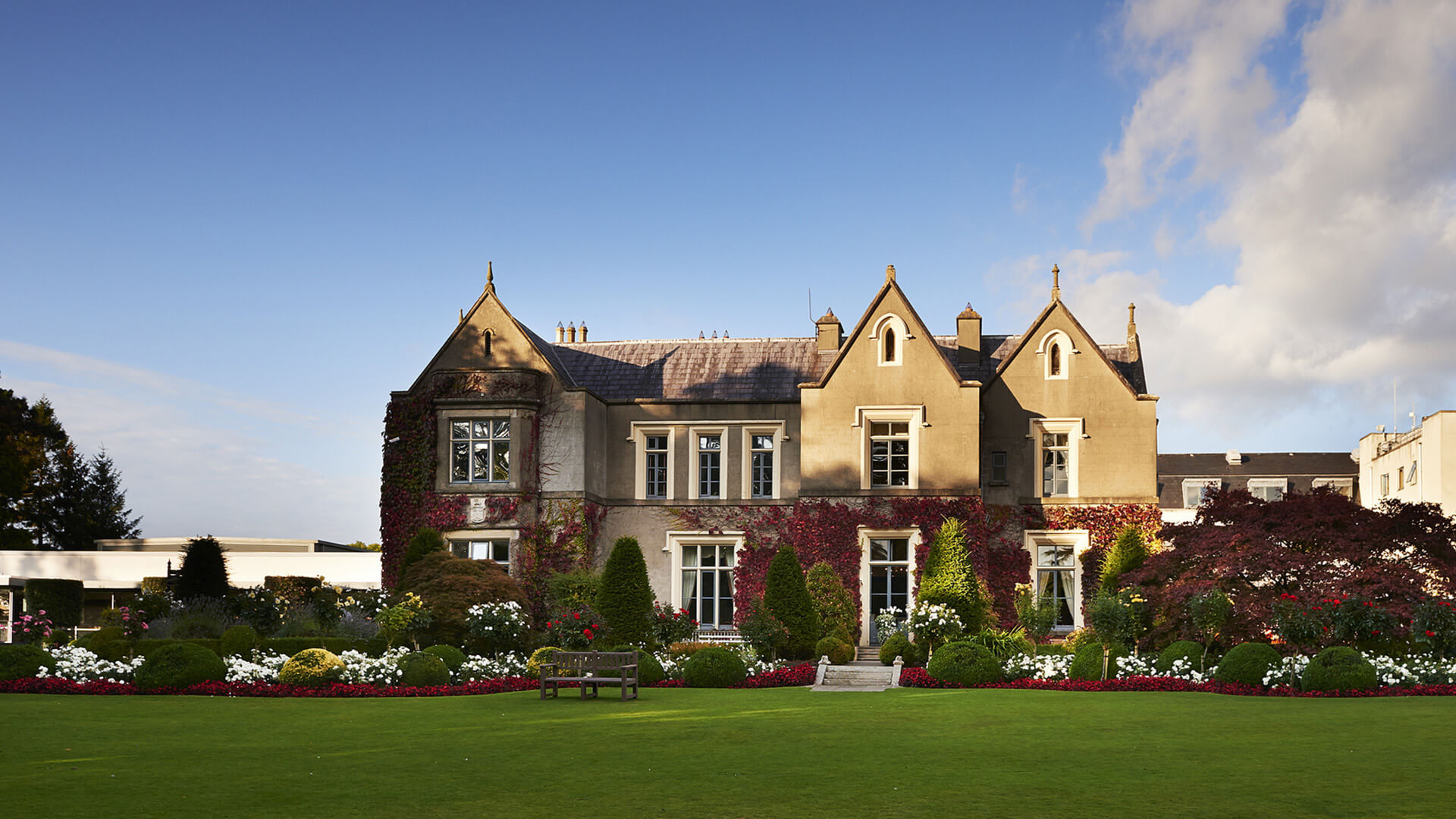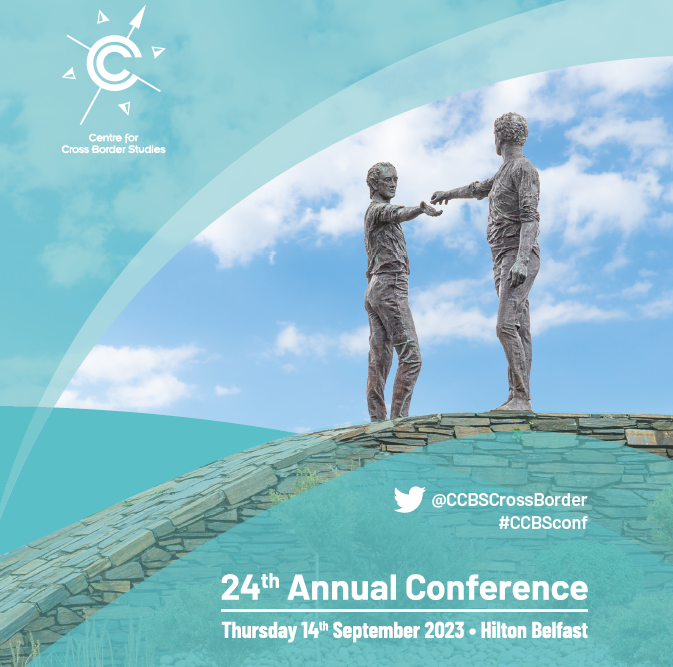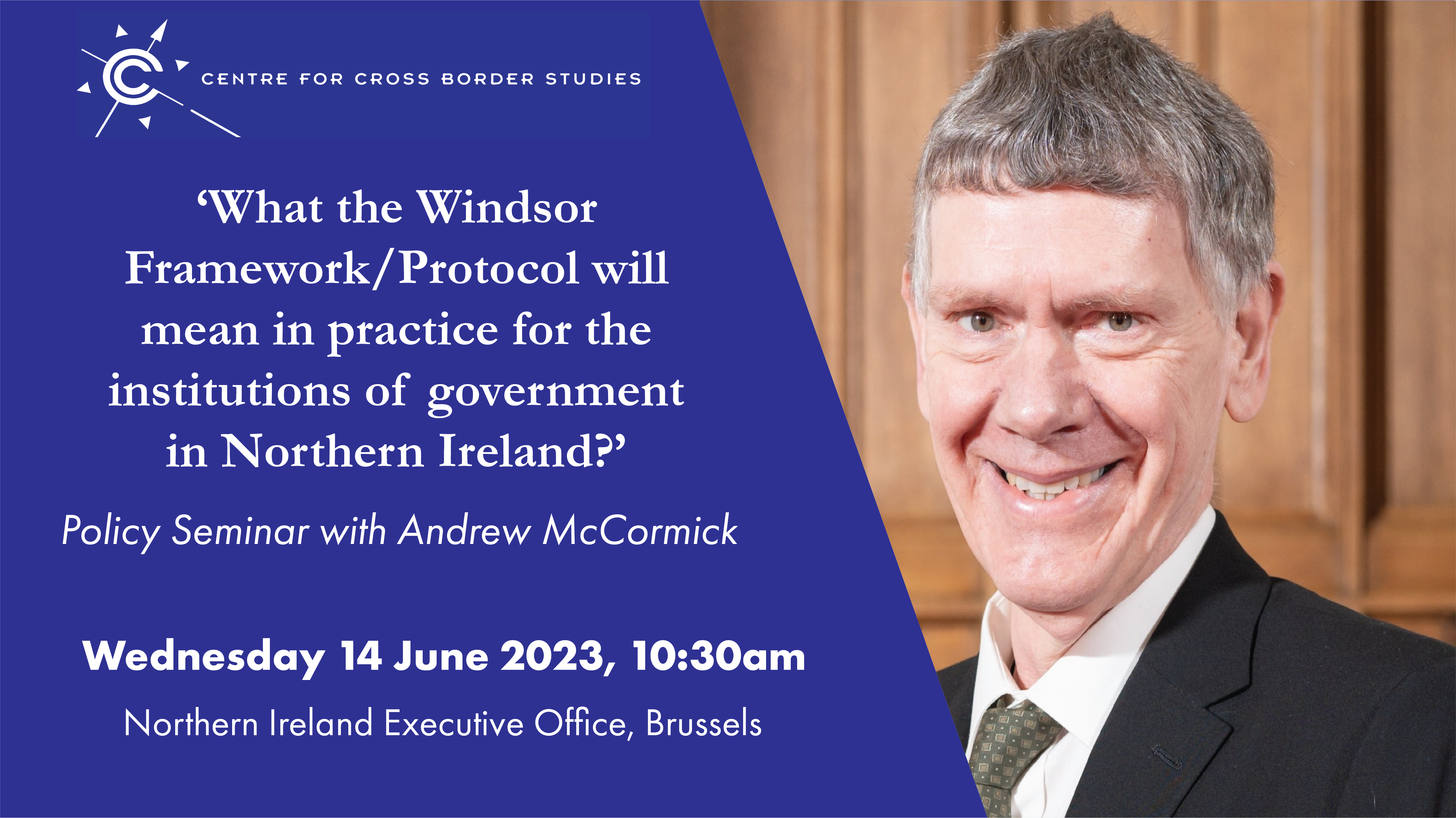 The ‘Rights After Brexit’ virtual event, hosted by the Centre for Cross Border Studies, saw the Northern Ireland Human Rights Commission (NIHRC), Equality Commission for Northern Ireland (ECNI), and the Irish Human Rights and Equality Commission (IHREC) listening to EU exit concerns, relating to human rights and equality, from civil society organisations from both sides of the border.
The ‘Rights After Brexit’ virtual event, hosted by the Centre for Cross Border Studies, saw the Northern Ireland Human Rights Commission (NIHRC), Equality Commission for Northern Ireland (ECNI), and the Irish Human Rights and Equality Commission (IHREC) listening to EU exit concerns, relating to human rights and equality, from civil society organisations from both sides of the border.
The event began with NIHRC Chief Commissioner, Les Allamby; ECNI Chief Commissioner, Geraldine McGahey, OBE; and IHREC Commissioner, Sinéad Gibney outlining the new roles and responsibilities for each organisation post-Brexit.
The human rights and equality bodies highlighted the ‘no diminution of rights’ commitment in Article 2 of the Ireland /Northern Ireland Protocol and the role of the ‘dedicated mechanism’ in overseeing the commitment. They also spoke about their joint work on all island oversight arrangements relating to rights and equalities issues falling within the scope of the commitment that have an island of Ireland dimension.
The three Commissions discussed the impact of Brexit with a number of cross-border civil society and local community groups, including issues related to rights and equality as a result of the UK’s exit from the European Union.
Anthony Soares, Director of the Centre for Cross Border Studies commented:
“Given the unique circumstances that pertain to the island of Ireland and the need to safeguard relations within and across these islands, it is vital that communities are aware of the important role of the Commissions in ensuring we all share the benefits of the highest human rights and equality protections possible, and that none of us lose the current protections as a consequence of the UK’s withdrawal from the EU. This is crucial not just for Northern Ireland, but also for how we relate with one another on a North-South basis. I am delighted, therefore, that the Centre for Cross Border Studies was able to host this event”.
NIHRC Chief Commissioner, Les Allamby said:
“We welcome the opportunity to engage with community representatives across the island. The Commissions together have a key role following the UKs withdrawal from the European Union to ensure the existing level of human rights and equality protections are monitored and maintained. Engagements like today are vital for us to hear about the practical issues people are facing following the EU exit, especially in border areas and rural communities.”
IHREC Chief Commissioner, Sinéad Gibney said:
“Over the last number of months we have put in place arrangements for working together to address the rights and equalities issues falling within the scope of the Article 2 commitment that have an island of Ireland dimension. We are meeting with cross border communities today to raise awareness of the dedicated mechanism, the all-island scrutiny role and to hear and discuss concerns about the impact of Brexit on rights and on equality of opportunity.”
Speaking after the event, Chief Commissioner of the Equality Commission, Geraldine McGahey said:
“Today’s discussion on cross border issues was extremely informative and useful. The session highlighted some of the key issues affecting our border communities and we will use this evidence to inform the work of the Commissions going forward, including our all island scrutiny work. We look forward to continuing to working closely with, and hearing from, cross border communities and groups to ensure the continued protection of equality and human rights after Brexit.”
Dr Anthony Soares is Director of the Centre for Cross Border Studies.His role includes leading in the development and advocacy of policies at regional, national and European levels that support sustainable cross-border and transnational cooperation. This has increasingly meant coordinating CCBS’s responses to the UK’s referendum on EU membership and its aftermath, publishing Briefing Papers and reports, submitting evidence to parliamentary committees in both Westminster and Dublin, and consulting with a range of political representatives and organisations on the island of Ireland, Great Britain and in Europe.
Geraldine McGahey OBE was appointed the Chief Commissioner for the Equality Commission for Northern Ireland in March 2020, having served as a Commissioner from 2015. Prior to this Geraldine was a former Chief Executive of Larne Borough Council and SOLACE gender champion. She represented local government on various regional fora including the Good Relations Panel, Flags Forum, Social Investment Fund and the Review of Public Administration. Geraldine has served as a Commissioner of the Northern Ireland Parades Commission from 2016 through to 2020 and as a Non Executive Director of the Northern Health and Social Care Trust from 2016 to 2020. Geraldine is a graduate of the University of Ulster and the University College of Estate Management. Geraldine was awarded the OBE in 2015 for services to local Government and the Community.
Les Allamby is the Chief Commissioner of the Northern Ireland Human Rights Commission. He took up post in September 2014, and his second term will last for two years until 31 August 2021. Les is a solicitor and formerly the Director of the Law Centre (Northern Ireland). He was appointed honorary Professor of Law at the University of Ulster in 2014 and he was a trustee of the Community Foundation for Northern Ireland from 2009-2018. He was a former Chair of an Advisory group to Human Rights Commission on proposals for economic and social rights within a Bill of Rights for Northern Ireland. From 2015-2018 he chaired the Commonwealth Forum for National Human Rights Institutions.
Chief Commissioner Sinéad Gibney leads the Irish Human Rights and Equality Commission having been appointed by President Michael D. Higgins in July 2020. Sinéad was the inaugural Director of the Commission, bringing together the former legacy bodies in the merger period and building up the organisation in terms of teams, facilities, planning and structure. Prior to this she built and led Google Ireland’s corporate social responsibility function, Social Action. Sinéad has also worked in providing training, consultancy and media production to a range of organisations in the civil society and public sectors.
Sinéad is a lifelong learner with an undergraduate degree in History from University of Ulster and four postgraduate qualifications in the topics of Information Technology & Education (MSc), Cyberpsychology, Equality Studies (MSc) and Human Rights Law from Trinity College Dublin, IADT Dun Laoghaire, UCD and the Law Society respectively. Sinéad is a former chair of the board of One Family and has served on a number of other boards; Digital Charity Lab, Victims’ Rights Alliance, Responsible Research & Innovation industry advisory group.



Become a supporter
If you would like to sponsor our events simply contact us and a member of our team will be in touch.
Get in touch




 Advanced Search
Advanced Search







